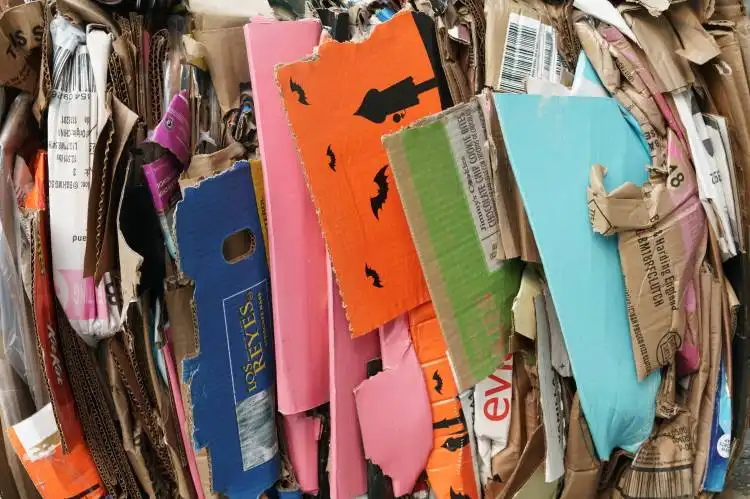Start a Metal Recycling Company
| Updated


METAL RECYCLING COMPANY
Running a metal recycling company is like being a modern-day alchemist, turning what some deem as "rubbish" into gold...or in this case, into profitable scrap metal! This business specializes in collecting, sorting, and processing various metals - like iron, copper, aluminum, and even precious metals - which are then sold to construction companies, manufacturers, and other industrial applications. So, why not dig into the treasure trove of metal waste and capitalize on making the world a bit cleaner and greener while you're at it?
Jump to Business Plan
RELATED BUSINESS IDEAS
Browse ALL Sustainability & Eco-Friendly Initiatives Business Ideas
Discover Your Perfect Domain
Unlock the door to your online success with our hand-picked selection of premium domain names. Whether you're starting a new venture or rebranding an existing one, the right domain can set the tone for your digital presence. Browse through our curated list, each with its unique potential to enhance your brand's visibility and credibility.
METAL RECYCLING MINI BUSINESS PLAN
This a quick reality check to help you identify the strengths and weaknesses of your business concept before you dive in.
Expected Percent Margin:
- Gross Margin: 20-30%
- Net Profit Margin: 5-10%
Earnings Expectations:
- Daily Earnings: $150 - $300
- Weekly Earnings: $750 - $1500
- Monthly Earnings: $3000 - $6000
- Annual Earnings: $36,000 - $72,000
Actions to Hit Those Numbers:
Infrastructure/Resource Acquisition:
- Initial Equipment Investment: Around $100k-$150k for forklifts, trucks, balers, conveyors and safety equipment.
- Operating Premises: Rent/Buy a conveniently located 5-10 acre land space to store and process the metals.
Procurement:
- Sourcing strategy: Develop partnerships with manufacturers, dismantlers and municipal collection centers for a steady supply of scrap metal.
Marketing and Client Acquisition:
- Business Relationships: Build and maintain strong relationships with customers. Your customer base will mainly consist of manufacturers and construction-related businesses.
- Digital Presence: Create a solid online presence including a user-friendly website and SEO optimization to attract potential suppliers and customers.
Sales and Customer Experience:
- Market Price Fluctuations: Keep an eye on the market prices of metals to strategically decide the buying and selling price.
Cost Control:
- Operational Costs: The major portion of expense would include rent/mortgage, utilities, truck maintenance, insurance and labor costs. Aim to control these fixed costs.
Business Operations:
- Business License: Acquire necessary permits and licenses for operating a metal recycling company.
- Safety Measures: Ensure safety measures and guidelines are strictly followed to avoid workplace accidents.
Remember that these estimates can vary greatly depending on location, scale of operation, and market conditions, among other factors. This should give you a basic idea, but always consult with a business advisor for personalized advice.
NOT WHAT YOU HAD IN MIND? Here are more ideas



Browse ALL Sustainability & Eco-Friendly Initiatives Business Ideas
Grab Your Business Website Name
Before you get caught up in the whirlwind of setting up your business, invest in a domain name. It's a small but significant step that lays the foundation for your brand and makes it easier for customers to find and trust you. Just like you wouldn't build a house without securing the land first, don't build a business without securing your domain name.
"Why? Can't that wait?" Here's why it shouldn't
Step 1: Determine if a Metal Recycling Company is the Right Endeavor
Breakdown of startup expenses
Before starting a metal recycling company, it is important to understand the startup costs associated with the business. These costs may include the cost of equipment, such as a truck, containers, and other tools needed to collect and process scrap metal. Additionally, there may be costs associated with obtaining the necessary permits and licenses to operate the business. It is important to research these costs and factor them into the overall budget.
Breakdown of ongoing expenses
After the initial startup costs, there are ongoing expenses associated with running a metal recycling company. These may include the cost of fuel, insurance, and other costs associated with maintaining the business. Additionally, there may be costs associated with hiring employees, marketing the business, and other overhead costs. It is important to research these costs and factor them into the overall budget.
Examples of ways to make money
There are a variety of ways to make money in the metal recycling industry. One way is to collect scrap metal from businesses and individuals and then sell it to metal recycling companies. Additionally, the business may be able to purchase scrap metal from other sources and resell it for a profit. Another way to make money is to offer services such as demolition and deconstruction, which can be a lucrative business. Finally, the business may be able to offer services such as metal fabrication or metal recycling services to other businesses.
Step 2: Name the Business
Choosing a name for your business is an important step in the process of starting a metal recycling company. It is important to choose a name that is memorable, unique, and reflects the services you offer. Consider the following tips when selecting a name:
Make sure the name is easy to pronounce and spell. A name that is difficult to pronounce or spell can make it difficult for customers to find you.
Consider the type of metal recycling you are offering. If you are specializing in aluminum, for example, you may want to incorporate that into your name.
Make sure the name is not already taken. You should research the name you have chosen to make sure it is not already in use by another business.
Consider the length of the name. A shorter name is easier to remember and can help customers find you more easily.
Think about the message you want to convey. Your name should reflect the services you offer and the values of your business.
Consider the impact of the name. It is important to think about how the name will be perceived by customers and the public.
Make sure the name is available in the domain name. You should also check to make sure the name is available on social media platforms.
Get feedback from friends and family. Ask for their opinion on the name you have chosen and any other suggestions they may have.
Step 3: Obtain Necessary Licenses and Permits
In order to start a metal recycling business, you must first research the local and state regulations that govern the industry. Depending on your location, you may need to obtain a business license, a permit to operate a recycling facility, or a permit to collect and transport scrap metal. It is important to research the regulations in your area to ensure that you are in compliance with all laws and regulations. Additionally, you may need to obtain a hazardous waste permit if you plan to recycle hazardous materials.
Apply for necessary licenses and permits
Once you have identified the licenses and permits you need to operate your business, you will need to apply for them. Depending on the type of license or permit you need, you may need to fill out an application, provide proof of insurance, and pay a fee. Additionally, you may need to provide a detailed business plan, financial statements, and other documents. Once you have submitted the necessary paperwork and paid the required fees, you will receive the necessary licenses and permits.
Maintain licenses and permits
Once you have obtained the necessary licenses and permits, it is important to maintain them. This includes renewing them when they expire and ensuring that you are in compliance with all regulations. Additionally, you may need to update your licenses and permits if your business changes or expands. It is important to stay up to date on the regulations in your area to ensure that you are in compliance with all laws and regulations.
Step 4: Develop a Business Plan
Outline of Goals and Objectives
Developing a business plan is essential for any business, and a metal recycling company is no exception. The business plan should include a detailed outline of the goals and objectives of the business. This should include the types of metals to be recycled, the target customer base, the methods of collecting and processing the metals, the estimated cost of the equipment and materials needed, and the expected profits. It should also include a timeline for reaching the goals and objectives.
Financial Projections
The business plan should also include financial projections for the metal recycling company. This should include a breakdown of startup expenses, such as the cost of equipment and materials, as well as the cost of any permits or licenses needed. It should also include a breakdown of the ongoing expenses, such as labor, utilities, and insurance. Finally, the financial projections should include examples of ways to make money from the metal recycling business, such as selling the recycled metals to manufacturers or other businesses.
Step 5: Secure Funding
The fifth step in starting a metal recycling business is to secure funding. There are several sources of funding available to entrepreneurs, including bank loans, private investors, government grants, and crowdfunding. Bank loans are the most common source of funding for small businesses, and they can provide a reliable source of capital to cover startup costs. Private investors can also provide capital, but they may require a stake in the business in return. Government grants are available in some areas, and they can provide a great source of funding for businesses that meet certain criteria. Finally, crowdfunding is a great way to raise money for a business, as it allows entrepreneurs to reach out to a large pool of potential investors.
Step 6: Obtain Necessary Licenses and Permits
Research local regulations
The sixth step in starting a metal recycling business is to obtain the necessary licenses and permits. This will require researching local regulations and laws to determine what type of licenses and permits are required. Depending on the state and local laws, this may include a business license, a waste disposal permit, a hazardous waste permit, and an environmental permit. Additionally, entrepreneurs may need to obtain a sales tax permit in order to collect sales tax from customers.
Step 7: Purchase Equipment
Consider used equipment
The seventh step in starting a metal recycling business is to purchase the necessary equipment. This will include items such as balers, shears, and shredders. Depending on the size of the business, entrepreneurs may want to consider purchasing used equipment to save money. Used equipment can be found at auctions, online marketplaces, and from other metal recycling businesses. Additionally, entrepreneurs may want to purchase a truck or van to transport the scrap metal.
Step 8: Find Customers
Networking
The eighth step in starting a metal recycling business is to find customers. This can be done through networking with other businesses in the industry, attending trade shows, and advertising online. Additionally, entrepreneurs may want to consider partnering with local businesses to provide recycling services. This can be a great way to build relationships with potential customers and increase the visibility of the business.
Step 9: Develop a Business Plan
Outline goals
The ninth and final step in starting a metal recycling business is to develop a business plan. A business plan should outline the goals and objectives of the business, as well as the strategies for achieving them. Additionally, the plan should include a financial analysis that outlines the startup costs, ongoing expenses, and potential sources of revenue. Finally, the business plan should include a marketing plan that outlines the strategies for attracting and retaining customers.
Step 6: Find a Location
When selecting a location for a metal recycling business, it is important to consider factors such as the availability of resources, the cost of renting or purchasing the space, and the local laws and regulations that may affect the business. It is also important to consider the proximity to potential customers and suppliers. Additionally, it is important to consider the safety of the location, including any potential hazards that could affect the business.
Finding the right location
Once the factors that should be considered when selecting a location have been identified, the next step is to find the right location. This can be done by researching potential locations online, talking to local business owners, and visiting potential locations in person. Additionally, it is important to consult with local authorities to ensure that the business is in compliance with all local laws and regulations. Finally, it is important to consider the cost of renting or purchasing the space, as well as any additional costs associated with the location.
Step 7: Purchase Equipment and Supplies
In order to start a metal recycling business, you will need to purchase a variety of equipment and supplies. This list should include a truck for hauling scrap metal, a large storage container for storing scrap metal, safety equipment, and any other tools or supplies you may need to run your business. You may also need to purchase a license or permit in order to legally operate a metal recycling business.
Cost of equipment and supplies
The cost of equipment and supplies will vary depending on the size and scope of your business. A truck and storage container may cost several thousand dollars, while safety equipment and other tools may cost a few hundred dollars. It is important to research the cost of equipment and supplies before starting your business in order to ensure that you have the necessary funds to purchase them.
Sources for purchasing equipment and supplies
When purchasing equipment and supplies for your metal recycling business, it is important to shop around for the best prices. You can find equipment and supplies at local hardware stores, online retailers, and scrap metal dealers. It is also possible to purchase used equipment and supplies from other metal recycling businesses.
Maintenance of equipment and supplies
In order to keep your business running smoothly, it is important to maintain your equipment and supplies. This includes regularly checking for wear and tear, replacing any broken or worn parts, and cleaning and lubricating all equipment. It is also important to keep track of any warranties or guarantees that come with your equipment and supplies.
Step 8: Market Your Business
Once you have your business up and running, it’s time to start marketing it. There are a few different strategies you can use to get the word out about your metal recycling business. One of the most effective ways is to create a website and use social media to promote it. You can also use traditional advertising methods such as print ads, radio and TV ads, and direct mail campaigns. Additionally, you can attend local events and trade shows to network and get your name out there. Finally, you can also partner with other businesses in the industry to cross-promote each other’s services.
Developing a customer loyalty program
Developing a customer loyalty program is another great way to market your metal recycling business. You can offer discounts or rewards to customers who bring in a certain amount of metal or who refer new customers to your business. You can also offer special promotions or discounts to customers who sign up for your loyalty program. This will help you build relationships with your customers and encourage them to come back to your business. Additionally, you can use your loyalty program to collect customer data, which can be used to better understand your customer base and target your marketing efforts more effectively.
Step 9: Manage Your Business
The final step in starting a metal recycling business is to manage it. This includes staying organized, setting goals, and creating a plan for success. It is important to keep track of all the metal that comes in and out of the business, as well as any other expenses. It is also important to keep up with any new regulations or laws that may affect the business. Additionally, it is important to create a budget and stick to it. This will help ensure that the business is profitable and successful.
Tips on marketing and advertising
Marketing and advertising are key components to any successful business, and a metal recycling business is no different. It is important to create a marketing plan that includes both online and offline strategies. This could include creating a website, utilizing social media, and attending local events. Additionally, it is important to create a brand identity and establish relationships with potential customers. This could include networking with local businesses and organizations, as well as offering discounts or incentives to customers.
Tips on staying competitive
In order to stay competitive in the metal recycling business, it is important to stay up to date on industry trends. This could include researching new technologies or processes that could help the business become more efficient. Additionally, it is important to stay in contact with other metal recycling businesses in the area to see what they are doing and how they are doing it. This could include attending conferences or trade shows, or even joining industry associations. Finally, it is important to stay ahead of the competition by offering competitive prices and services.
EXPLORE MORE CATEGORIES
Browse ALL Business Idea Categories
TAKE THE NEXT STEPS









